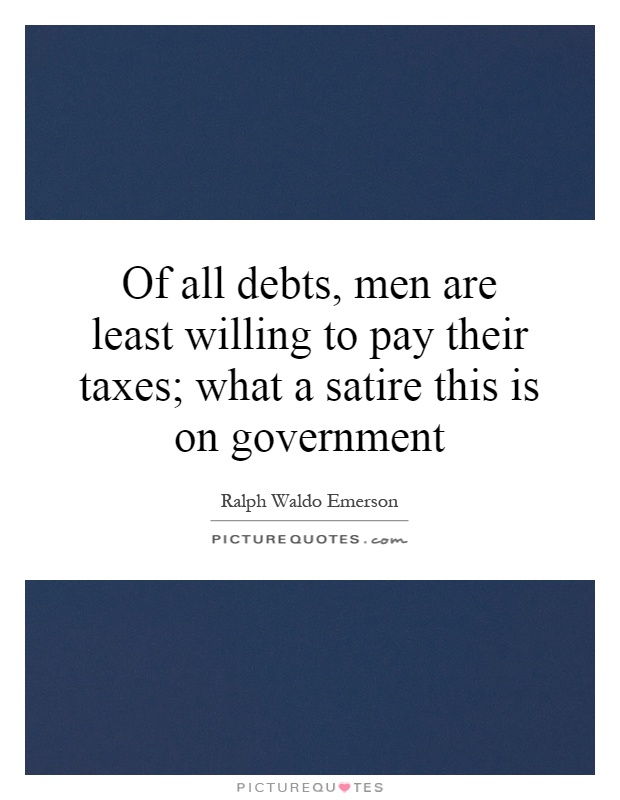Of all debts, men are least willing to pay their taxes; what a satire this is on government

Of all debts, men are least willing to pay their taxes; what a satire this is on government
Ralph Waldo Emerson, a renowned American essayist, poet, and philosopher, was known for his insightful and thought-provoking views on various aspects of life, society, and government. One of his famous quotes, "Of all debts, men are least willing to pay their taxes; what a satire this is on government," sheds light on the complex relationship between individuals and the government, particularly in terms of financial obligations.Emerson's observation about people's reluctance to pay taxes can be seen as a reflection of the inherent tension between citizens and the state. Taxes are a necessary means for governments to fund public services, infrastructure, and social welfare programs. However, many individuals view taxes as a burden, an infringement on their personal wealth, and a source of frustration due to the perceived inefficiency or misuse of public funds.
Emerson's use of the word "satire" in this context is particularly striking. Satire is a literary device that uses humor, irony, or exaggeration to criticize or ridicule human folly or vices. By describing the reluctance to pay taxes as a satire on government, Emerson suggests that there is a fundamental disconnect between the expectations of citizens and the actions of the state. The government relies on taxes to function effectively, yet many individuals resist this financial obligation, highlighting a sense of distrust, dissatisfaction, or disillusionment with the system.
Emerson's quote also raises questions about the nature of government and its relationship with the governed. In a democratic society, citizens have the right to voice their opinions, hold their leaders accountable, and participate in the decision-making process. However, when individuals refuse to pay their taxes, it can be seen as a form of protest or resistance against the perceived injustices or inefficiencies of the government.
Overall, Emerson's quote serves as a reminder of the complex dynamics between individuals and the state, highlighting the challenges and contradictions inherent in the relationship between citizens and their government. It encourages us to reflect on the role of taxes in society, the responsibilities of both citizens and the state, and the need for transparency, accountability, and mutual respect in governance.












 Friendship Quotes
Friendship Quotes Love Quotes
Love Quotes Life Quotes
Life Quotes Funny Quotes
Funny Quotes Motivational Quotes
Motivational Quotes Inspirational Quotes
Inspirational Quotes